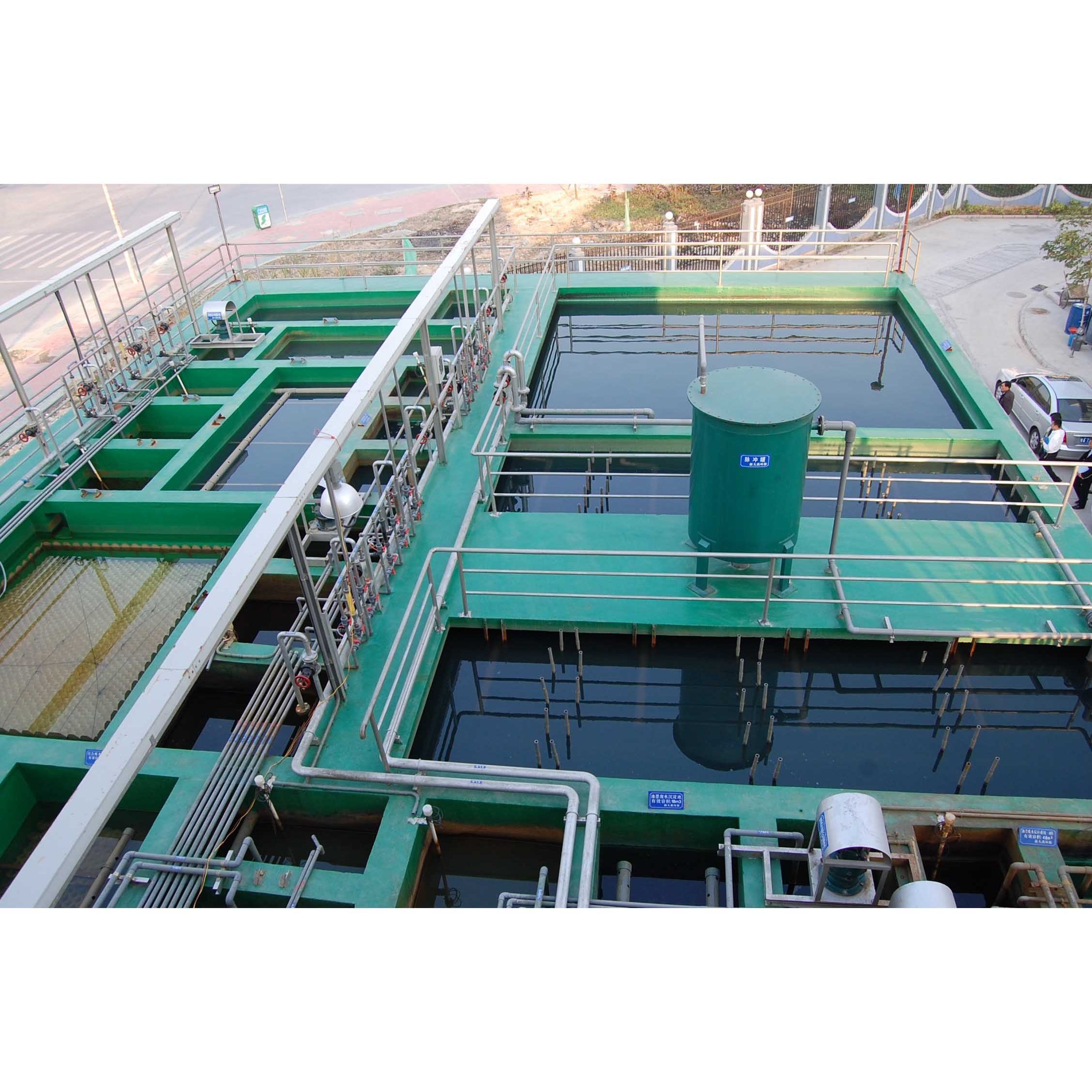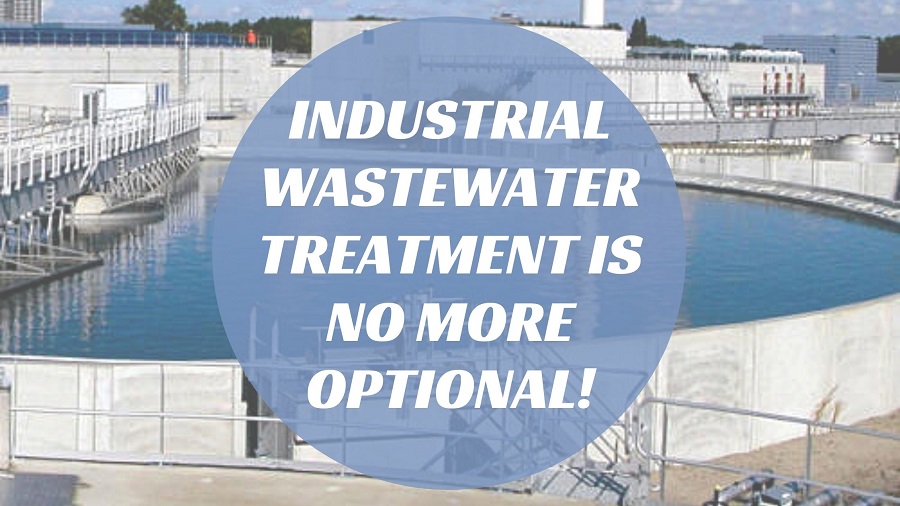Developments and Advances in Hazardous Waste Water Treatment Technologies
The landscape of commercial wastewater treatment is undertaking a transformative change, driven by innovations that enhance both performance and sustainability. As regulative requirements develop, the combination of AI and maker discovering into wastewater monitoring systems assures to enhance operations and make sure compliance.
Review of Waste Water Therapy Technologies
Wastewater treatment technologies include a variety of methods designed to get rid of pollutants from industrial effluents prior to their launch right into the setting. These technologies are crucial for preserving ecological equilibrium and guaranteeing compliance with ecological laws. The primary groups of wastewater therapy consist of physical, chemical, and biological methods, each offering distinct purposes based on the nature of the impurities existing.

Biological treatment approaches utilize bacteria to deteriorate raw material, making them particularly efficient for organic-rich effluents. Methods like triggered sludge and biofilm activators harness the all-natural destruction capacities of microorganisms, bring about significant reductions in biochemical oxygen demand (BOD)
Advanced Filtering Methods
Advanced filtration techniques stand for a vital advancement in the world of industrial wastewater treatment, improving the efficiency of pollutant removal procedures. Industrial Waste Water Treatment. These methods incorporate a series of technologies, consisting of microfiltration, ultrafiltration, nanofiltration, and reverse osmosis, which provide sequential barriers for numerous fragment dimensions and chemical frameworks
Microfiltration and ultrafiltration utilize membrane systems to eliminate suspended solids, germs, and bigger natural molecules, improving the high quality of effluent before more treatment. Nanofiltration links the void between ultrafiltration and turn around osmosis, successfully getting rid of divalent ions and organic compounds, therefore lowering the tons on downstream procedures.
Reverse osmosis offers the highest degree of filtration by enabling only water and little molecules to travel through its semi-permeable membrane layers, making it excellent for reclaiming top notch water from industrial effluents. Recent innovations in membrane technology, consisting of the growth of more durable and fouling-resistant products, have actually dramatically improved operational efficiency and lowered prices.
Including these sophisticated filtering techniques not only enhances the overall therapy procedure yet additionally adds to sustainability efforts by making it possible for water reuse and resource recuperation in industrial setups. (Industrial Waste Water Treatment)
Biological Treatment Developments

Moreover, the growth of crafted biological systems, such as membrane bioreactors (MBRs), combines organic therapy with advanced membrane layer filtering. This integration enables for higher effluent top quality and decreased impact, making it appropriate for space-constrained industrial centers. Innovations in genetically crafted microorganisms have also emerged, improving the biodegradation of details impurities, such as drugs and heavy metals, that are traditionally challenging to eliminate.
Furthermore, the application of bioaugmentation methods, where valuable germs are introduced to boost the existing biological treatment procedures, has revealed promising lead to enhancing therapy performance. These developments collectively signify a trend in the direction of more sustainable and efficient organic treatment methodologies that can adjust to the developing complexities of commercial wastewater streams. As markets remain to prioritize environmental conformity, these biological advancements will play a critical role in wastewater management.

Resource Healing Methods
In commercial setups, the assimilation of source recovery techniques has actually ended up being significantly essential for enhancing sustainability and minimizing waste. These approaches concentrate on drawing out valuable products and energy from wastewater streams, thereby transforming potential contaminants right into reusable resources.
One popular technique is vitamins and mineral healing, where nitrogen and phosphorus, commonly existing over in wastewater, are captured and exchanged plant foods. This not just reduces environmental influences yet additionally offers a circular economic situation option for agricultural applications. In addition, innovations such as anaerobic digestion enable the conversion of natural waste right into biogas, an eco-friendly energy source that can counter fossil fuel usage in commercial operations.
In addition, progressed filtering and membrane layer innovations assist in the recuperation of industrial spin-offs such as salts and steels. These recovered products can be rehabilitated into production procedures, minimizing the need for virgin resources.
Future Patterns in Drainage Administration
As sectors significantly prioritize sustainability, the future of wastewater management is readied to undergo substantial changes. Technical improvements, such as expert system and machine knowing, will enable a lot more effective tracking and management of wastewater systems. These innovations can forecast upkeep needs, maximize treatment processes, and boost decision-making, eventually decreasing functional prices and environmental you can try these out influence.
Additionally, the integration of circular economic situation principles will play an essential role in wastewater administration. Industries are anticipated to change towards systems that not only deal with wastewater but additionally recuperate valuable resources, such as nutrients, water, and energy. This transition will decrease waste and advertise the reuse of materials, straightening with worldwide sustainability goals.
Arising treatment techniques, such as membrane bioreactors and progressed oxidation processes, will certainly better boost the effectiveness of wastewater therapy, click over here enabling greater quality effluents suitable for reuse. Furthermore, governing frameworks are likely to develop, emphasizing stricter criteria for wastewater discharge and motivating markets to embrace cutting-edge therapy services.
Conclusion
To conclude, the advancement of industrial wastewater treatment modern technologies shows a significant change towards boosted performance and sustainability. Advancements in innovative filtering techniques, organic therapies, and resource recuperation methods highlight the market's dedication to environmental stewardship. The integration of expert system and equipment understanding further enhances these processes, guaranteeing regulative compliance and advertising a circular economy. Proceeded innovations in these locations will certainly play a critical function in shaping the future of wastewater administration and protecting crucial water resources.
The landscape of industrial wastewater treatment is going through a transformative change, driven by technologies that improve both effectiveness and sustainability.Wastewater therapy technologies incorporate a range of techniques created to get rid of contaminants from industrial effluents before their release right into the atmosphere.Taking advantage of the power of organic processes has led to considerable innovations in the therapy of commercial wastewater.Furthermore, the execution of bioaugmentation strategies, where helpful germs are introduced to improve the existing biological therapy processes, has revealed encouraging outcomes in improving treatment efficiency. These advancements jointly symbolize a trend towards even more lasting and effective organic treatment techniques that can adjust to the developing intricacies of industrial wastewater streams.